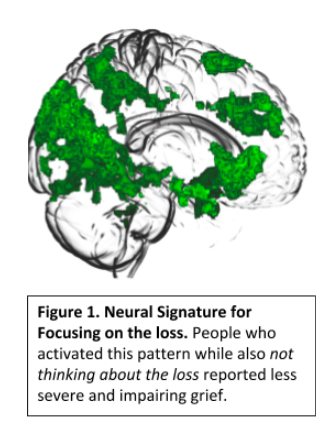The Intense Emotional Pain That Comes With Losing a Loved One to Suicide
Editor's Note
If you experience suicidal thoughts or have lost someone to suicide, the following post could be potentially triggering. You can contact the Crisis Text Line by texting “START” to 741741.
“This is like no other pain I’ve experienced before” is how most of the people I work with describe grieving suicide. Hand in hand with this pain comes a sense of self-judgment and doubt: “Am I grieving the right way?” These experiences of pain and self-criticality can form a nearly constant cycle in the mind.
In our studies of suicide grief, my colleagues and I have discovered that outside of the intense emotional pain and the preoccupation of grieving another quieter healing process is taking place. We have identified unconscious processing of the loss occurring outside of awareness. This unconscious processing corresponded to less impairing and overwhelming feelings of grief. Meaning that during times when the mind is focused on other aspects of life like shopping, taking care of family, work, driving or really anything else a separate part of the mind may be silently processing the loss and working towards a resolution.

We identified this unconscious grieving by first finding a neural signature for focusing on the loss (Figure 1). A neural signature is a pattern of brain activity linked to a specific psychological process, in this case focusing on the loss. We then presented a rather mindless button pressing task and periodically asked people if they were thinking about their loss. People varied in terms of how much they did or did not think about the loss during this button pressing task.
We were specifically interested in the neural activity happening when people were not thinking about the loss. Those who activated the neural signature for focusing on the loss in the absence of actual conscious thoughts of loss reported less impairing and overwhelming grief. The presence of neural activity linked to focusing on the loss in combination with not thinking about the loss, therefore, appears to be a type of unconscious loss processing.
These findings mean that even while the conscious mind is distracted or focused on something else, a separate part of the mind can be working on the loss and potentially moving a person towards healing.
For me, these findings are particularly relevant when I speak to grievers who are overwhelmed with trying to figure out how to grieve. Feelings of grieving too much or too little, feeling too guilty or not guilty enough, too sad or not sad enough or somehow not grieving in the right way can dominate the mind. I’ve taken to calling this tendency to critique and judge one’s own grieving as “meta-grieving” or the thoughts one has about their grieving and the worries they may have about how family members are grieving.
The fact that unconscious grieving exists might provide a bit of a counter to the worries of meta-grieving. One does not entirely have to figure out exactly “how to grieve.” The unconscious mind is quietly and persistently helping out and working on the task of grieving. The brain knows how to do it and one does not need to figure it out all on their own. In a sense, it is like any other natural biological process like falling asleep. We don’t “figure out” how to fall asleep, rather we set a certain context and allow the brain to fall asleep for us.
It can be hard to imagine how to live the rest of your life with the grief of suicide. Life stretches out like an impossible road. The fact that the unconscious mind is working on the grief can mean that one day things might just feel different. The road will feel different, the way the world seems impossible and overwhelming will feel different. This is how our unconscious mind works beneath the surface to change the way reality feels. One day it may seem impossible to imagine living a fulfilling and joyful life. Over the course of time as the brain works to unconsciously process the loss the picture may change and the same future may look different.

